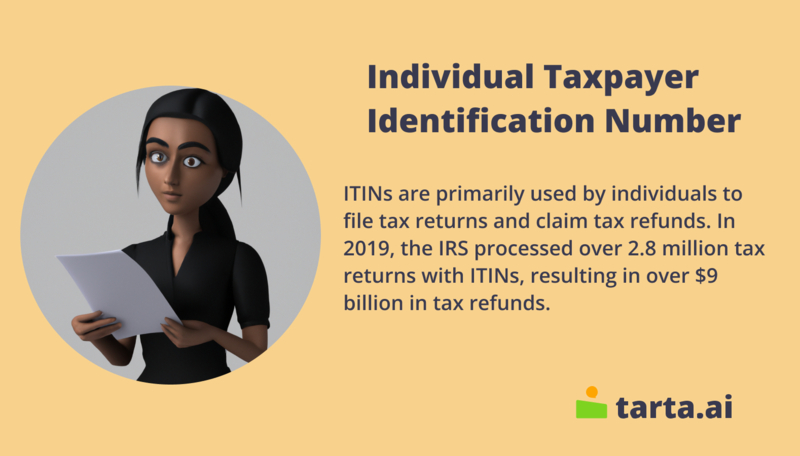Tax Identification Number: How to apply?

PHOTO: hamburg.com
What is Tax Identification Number?
A Tax Identification Number (TIN) is a unique identification number assigned by the Internal Revenue Service (IRS) to individuals and businesses for the purpose of tracking their tax obligations and payments. It is used to track tax returns, payments, and other related information. The most common types of TINs in the US are Social Security Numbers (SSNs) for individuals and Employer Identification Numbers (EINs) for businesses.
NOTE
Tax Identification Numbers (TINs) are used not only for tax purposes, but also for other important functions such as opening a bank account, obtaining a loan, and verifying identity for certain government programs.
What are the TIN types?
- Social Security Numbers (SSNs): These are nine-digit numbers assigned by the Social Security Administration (SSA) to U.S. citizens and permanent residents for the purpose of tracking their earnings and benefits.
- Employer Identification Numbers (EINs): These are nine-digit numbers assigned by the Internal Revenue Service (IRS) to businesses and other organizations for the purpose of tracking their tax obligations and payments.
- Individual Taxpayer Identification Numbers (ITINs): These are nine-digit numbers assigned by the IRS to nonresident or resident aliens who are ineligible for an SSN, but who need to file U.S. tax returns or meet other tax obligations.

- Adoption Taxpayer Identification Numbers (ATINs): These are temporary numbers assigned by the IRS to adoptive parents who are in the process of legally adopting a child, but who do not yet have the child's Social Security Number.
- Preparer Tax Identification Numbers (PTINs): These are six- or eight-digit numbers assigned by the IRS to tax preparers who are required to have a PTIN in order to prepare and file tax returns for clients.
How to apply for a TIN?
The process for applying for a Tax Identification Number (TIN) depends on the type of TIN you need. Here are some general steps to follow:
- Determine which type of TIN you need: You'll need to know whether you need an Individual Taxpayer Identification Number (ITIN), Employer Identification Number (EIN), Social Security Number (SSN), or another type of TIN.
- Gather the necessary documentation: Depending on the type of TIN you need, you may need to provide certain documents to prove your identity or business information. For example, if you're applying for an ITIN, you'll need to provide a completed W-7 form and documentation that proves your foreign status and identity.
- Submit your application: You can typically apply for a TIN online, by mail, or in person at an IRS office or Social Security Administration (SSA) office. The application process can vary depending on the type of TIN you need.
- Wait for processing: It can take several weeks or months for your TIN application to be processed, depending on the type of TIN and the time of year. Once your TIN is assigned, you'll receive a notification in the mail.
Keep in mind that the process for applying for a TIN can be complex, and it's important to make sure you provide accurate and complete information to avoid delays or issues with your tax obligations. If you're unsure about how to apply for a TIN, you may want to consult with a tax professional or seek assistance from the IRS or SSA.
Tip
Your TIN is linked to your tax obligations, so make sure you keep track of your tax payments and deadlines. This will help you avoid penalties and interest charges.
Importance of keeping TIN information secure
Tax Identification Numbers (TINs) are unique identification numbers assigned by the IRS in the United States for tax purposes. They play a critical role in ensuring tax compliance and tracking tax obligations and payments. However, TINs are also valuable pieces of personal and business information that can be used by identity thieves to commit fraud. Therefore, it is important to keep TIN information secure and take steps to prevent unauthorized access to this sensitive information. In this part of the article, we will discuss the importance of TIN security and provide tips on how to keep your TIN information safe.
- Prevent identity theft: TINs are valuable pieces of personal and business information that can be used by identity thieves to open fraudulent accounts, file false tax returns, and commit other forms of fraud. By keeping your TIN information secure, you can reduce your risk of becoming a victim of identity theft.
- Protect your tax information: TINs are used to track tax obligations and payments, so if your TIN information falls into the wrong hands, it could lead to unauthorized access to your tax information. This could result in fraudulent tax returns being filed in your name, or other unauthorized activity related to your tax account.
- Comply with legal requirements: Depending on your industry or business type, you may be required by law to keep TIN information secure. For example, healthcare providers and financial institutions are subject to strict privacy and security requirements under federal and state laws.
To keep your TIN information secure, you should take steps such as:
- Avoid sharing TIN information unnecessarily: Only share your TIN information with trusted parties who have a legitimate need to know, such as your employer or tax professional.
- Use secure storage and transmission methods: If you need to store or transmit TIN information, use secure methods such as encrypted email or password-protected files.
- Monitor your credit and tax accounts: Regularly review your credit reports and tax accounts to look for signs of unauthorized activity, such as unfamiliar accounts or unauthorized tax filings.
By taking these steps, you can help protect your TIN information and reduce your risk of identity theft and other fraud.
TINs for international individuals and businesses
International individuals and businesses may need to obtain a Tax Identification Number (TIN) in the United States if they have U.S. tax obligations. Here are some key points to keep in mind:
- Individual Taxpayer Identification Number (ITIN): International individuals who are not eligible for a Social Security Number (SSN) may be able to obtain an ITIN from the IRS. This includes nonresident aliens who have U.S. tax filing requirements, such as those who receive rental income from a U.S. property.
- Employer Identification Number (EIN): International businesses that conduct business in the United States may need to obtain an EIN from the IRS. This includes businesses that have employees in the United States or that have a U.S. presence, such as a branch or subsidiary.
- Treaty benefits: International individuals and businesses may be eligible for certain tax treaty benefits that can help reduce their U.S. tax liability. To claim treaty benefits, you may need to provide your TIN to the IRS or other tax authorities.
- Application process: The process for obtaining a TIN as an international individual or business can be complex, and may require additional documentation to prove your identity or business information. You may want to consult with a tax professional or seek assistance from the IRS or Social Security Administration (SSA) to ensure you provide accurate and complete information.
- Compliance requirements: Once you have a TIN, you'll need to comply with all U.S. tax requirements, including filing tax returns and paying any taxes owed. Noncompliance can result in penalties and other consequences, so it's important to stay up to date on your tax obligations.
In summary, international individuals and businesses may need to obtain a Tax Identification Number (TIN) in the United States if they have U.S. tax obligations. This may include obtaining an Individual Taxpayer Identification Number (ITIN) for nonresident aliens or an Employer Identification Number (EIN) for international businesses. It's important to be aware of any treaty benefits that may be available, and to ensure compliance with all U.S. tax requirements once a TIN has been obtained. Seeking assistance from a tax professional or the IRS or Social Security Administration can help navigate the complex application process and ensure accurate and complete information is provided.
- TINs are used for tax-related purposes and are assigned to individuals, businesses, and other entities that have tax obligations.
- The most common types of TINs in the United States are Social Security Numbers (SSNs), Employer Identification Numbers (EINs), and Individual Taxpayer Identification Numbers (ITINs).
- TINs are important for tax compliance and can be used to identify taxpayers, report income, and pay taxes.
- TIN requirements can vary depending on your profession, industry, and tax obligations.
- It's important to keep your TIN information secure to prevent identity theft and other forms of fraud.
- Resources for learning more about TINs include the IRS website, tax professionals, government agencies, and online forums and communities.
- Staying up to date on any changes or updates to TIN requirements is important to ensure compliance with tax laws and regulations.
FAQ
What is a Tax Identification Number (TIN), and why is it important?
A unique identification number assigned by the IRS in the US for tax purposes, important for tax compliance and to prevent identity theft and fraud.
How do I apply for a TIN, and what documents do I need to provide?
Application process varies by type of TIN, personal information and relevant business info typically required.
What are the different types of TINs, and which one should I apply for?
Three common types are SSNs, EINs, and ITINs. The type needed depends on individual situation and tax obligations.
How can I keep my TIN information secure to prevent identity theft and fraud?
Keep TIN secure, avoid sharing unnecessarily, be cautious of scams and phishing attempts, and monitor credit report regularly.
Are there any changes to TIN requirements that I should be aware of?
TIN requirements can change over time, so stay up to date on any updates or changes that may affect tax obligations. Consult a tax professional or check the IRS website for updates.